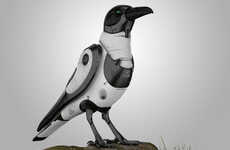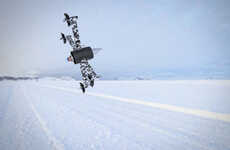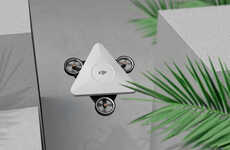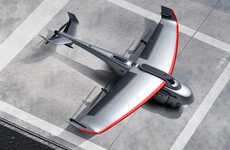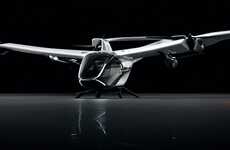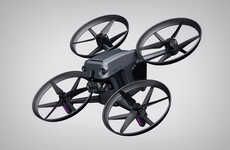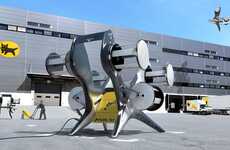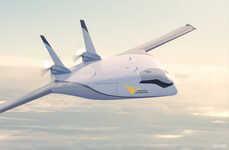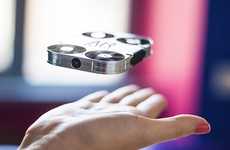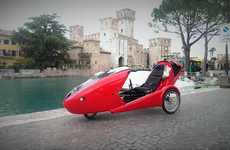
The Airbus Drone Borrows Its Build from the Engineering of Airplanes
Amelia Roblin — August 2, 2016 — Autos
References: airbusgroup & yankodesign
The public has gotten accustomed to seeing highly symmetrical and often spindly looking quadrocopter drones––forms that the Airbus drone has diverged from. A new design by Frédéric Le Sciellour demonstrates a marked similarity between your standard airplane and this: the Thunderbird Drone.
The concept aircraft has four prominent wings, each with a propeller integrated into its tip. These wings angle towards the rear of the vehicle, creating a supremely aerodynamic shape that rivals the body of most drones on the market. You can just picture it gliding smoothly across the city.
This Airbus drone competition winner is significant because it would provide more than a camera to record what's beneath. An internal compartment would be capable of storing any number of emergency supplies or materials, assisting in interstate organ transplants, coastal rescues and urgent drops of water and food. The sky is the limit.
The concept aircraft has four prominent wings, each with a propeller integrated into its tip. These wings angle towards the rear of the vehicle, creating a supremely aerodynamic shape that rivals the body of most drones on the market. You can just picture it gliding smoothly across the city.
This Airbus drone competition winner is significant because it would provide more than a camera to record what's beneath. An internal compartment would be capable of storing any number of emergency supplies or materials, assisting in interstate organ transplants, coastal rescues and urgent drops of water and food. The sky is the limit.
Trend Themes
1. Hybrid Aircraft Drones - The use of airplane engineering in drone design has created hybrid drones with superior aerodynamics and the ability to carry cargo.
2. Emergency Cargo Drones - The incorporation of internal compartments in drone design allows for the transportation of emergency supplies and materials, creating opportunities for disaster response and medical aid.
3. Aerodynamic Drone Design - Drone design that mimics airplane engineering can create a more aerodynamic shape, improving drone efficiency and range.
Industry Implications
1. Aviation - The aviation industry can incorporate drone design into aircraft engineering to improve flight efficiency and cargo capacity.
2. Emergency Services - Emergency services industries can use cargo drones for faster and more efficient transportation of emergency supplies and materials to disaster zones or remote areas.
3. Medical - The medical industry can use drone technology for faster and more efficient transportation of high-priority materials, such as organs for transplant, to save lives.
5.5
Score
Popularity
Activity
Freshness

